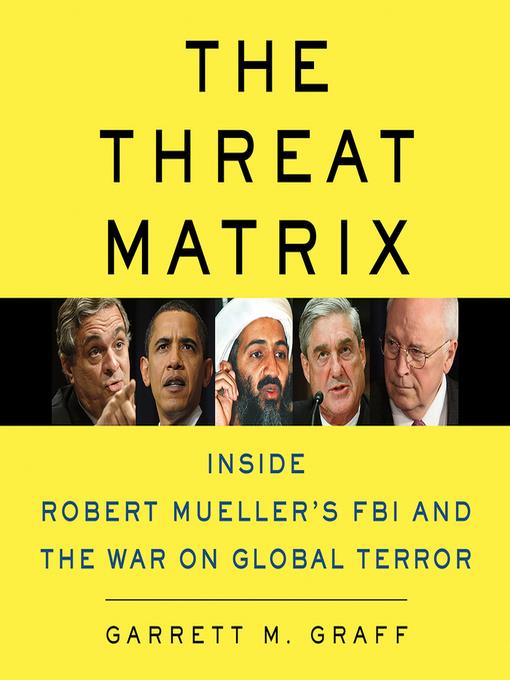
The Threat Matrix
Inside Robert Mueller's FBI and the War on Global Terror
فرمت کتاب
audiobook
تاریخ انتشار
2017
نویسنده
Garrett M. Graffناشر
Hachette Audioشابک
9781549112744
کتاب های مرتبط
- اطلاعات
- نقد و بررسی
- دیدگاه کاربران
نقد و بررسی

Starred review from April 11, 2011
It's not often that a political thriller is true, but Graff (The First Campaign) pieces together a gripping, cogent narrative from an immense amount of sources, including previously un-reported information. Former FBI Director Louis Freeh was infamous for being a luddite, and Graff shows how his leadership slowed intelligence operations preceding 9/11 and in what ways the agency still suffers from his tenure. Graff handles a highly complex topic with ease, tracking the ways that the FBI adapted as terrorism changed. He takes seriously even ridiculous threats, such as an absurd letter penned by a Filipino teenager and the realization that the FBI lacked a file on the Japanese cult that released sarin gas in Tokyo even though they were listed in the Manhattan phone book. Some episodes, however, are straight-out horrifying, like a discussion of the events behind a July 2001 memo's theory that terrorists were in the U.S. training at civil aviation facilities. Graff's focus, though it covers a time span from J. Edgar Hoover's death to the present day, rests particularly on the massive intelligence failures in the 10 years preceding 9/11, and after (it's fair to say we're not a whole lot safer today). Painstaking research and character studies make this an informative and exciting work.

Starred review from March 15, 2011
Action-filled, richly detailed portrait of the Federal Bureau of Investigation in its new guise--charged not just with solving crimes already committed, but now with preventing at least some of them.
When the music piped in to the FBI's Visitor Center in Washington, D.C., includes cuts by John Lennon, you know that these aren't your grandpa's G-men. By Washingtonian editor-in-chief Graff's (The First Campaign: Globalization, the Web, and the Race for the White House, 2007) account, almost everything we know about the FBI is frozen in time, locked in anachronistic images of J. Edgar Hoover and Eliot Ness. Today, under the direction of Robert Mueller, the FBI enjoys as much influence as it did in the days of Hoover: The president sees an FBI agent and an FBI "threat matrix" report every day, the latter "a printed spreadsheet of all the various terrorist plots and worrisome intelligence the government was currently tracking." Hundreds of FBI agents now travel the globe in search of enemies and criminals, stationed in some 60 countries; as Graff notes, the agency once "even worked a computer-hacking case in Antarctica." The nearly 14,000 agents are a very special kind of law-enforcement officer indeed--nearly half have a graduate degree, many are lawyers or accountants and Mueller himself specialized in litigating complex white-collar crimes before heading the agency. There is good reason for this specialization, for if the FBI has transformed itself into a prosecutorial rather than primarily investigative force, in response to George W. Bush's demand that "the Bureau adopt a wartime mentality," it is to fight crime at the level of terrorist cell and secret bank accounts. Graff highlights the agency's work in the post-9/11 world, cogently examining the role of intelligence in international affairs while making a quiet case for us to think a little better of the G-men and women. The CIA is another matter...
There's solid storytelling at work here--and quite a story to tell, too.
(COPYRIGHT (2011) KIRKUS REVIEWS/NIELSEN BUSINESS MEDIA, INC. ALL RIGHTS RESERVED.)

























دیدگاه کاربران